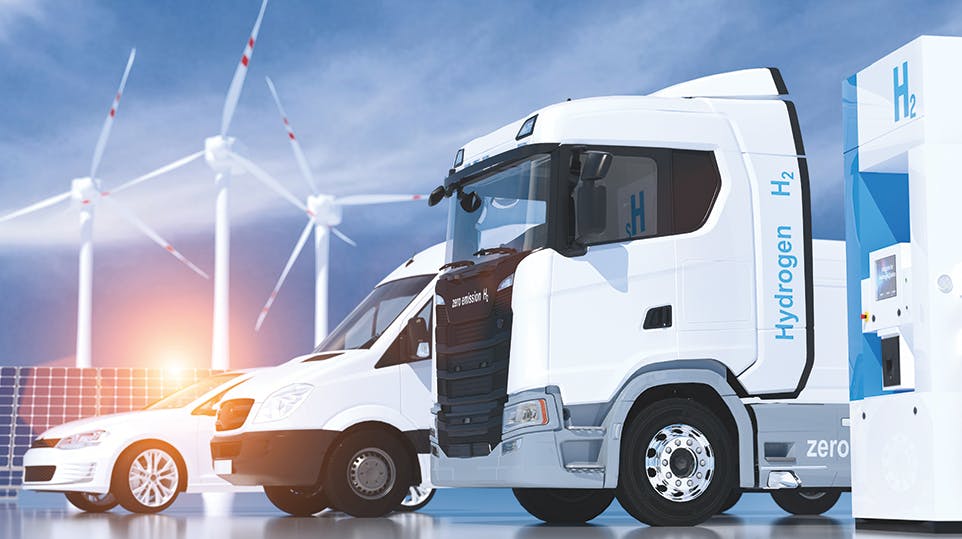BECOMING THE INDUSTRIAL LEADER IN HYDROGEN MOBILITY
A pioneer in hydrogen mobility, Plastic Omnium has established itself as a key actor in decarbonized mobility with New Energies. The Group is now ready to service new types of mobility and move to production at scale of hydrogen tanks fuel cells.
What makes hydrogen the future for mobility?
Hydrogen offers zero-emission energy when combined with renewables and fuel cells. This means it can play a key role in decarbonizing the world’s economies. Over 30 countries already have hydrogen roadmaps in place and more than US$70 billion in public funding has been earmarked to develop the industry. There are currently some 200 separate industrial projects and investment plans, 85% of them in Europe, Asia and Australia. With a projected two million fuel cell vehicles on the road by 2030, hydrogen mobility is a strategically important emerging market from the social and financial perspectives. Plastic Omnium has invested €300 million since 2015 to become a major actor in this market, which will initially involve heavy transportation - trucks, buses, trains and planes - then cars. By 2030, we want to be achieving annual revenue of €3 billion in this highly promising decarbonized mobility market.
What led the Group to set up the New Energies division?
For the past five years, New Energies was taking shape as part of the Clean Energy Systems division. With the arrival of the first commercial successes and the growing maturity of our teams, it was the right time to set up on our own. During 2021 we won contracts across all mobility segments: car, bus, truck, utility vehicule and rail. One of our standout contracts is with Hyundai, producing 30,000 hydrogen tanks a year for its new hydrogen model. Hydrogen is no longer a future goal, it is becoming an industrial reality.
In 2022, we will be opening a high-pressure tank production line in South Korea. We are planning to expand our industrial footprint to other parts of the world and open a fuel cell production line in Austria. This switch to production at scale meant we needed a dedicated structure and specific skills to service this form of mobility and increase our understanding of technologies such as fuel cells. And that’s what we’ve done by setting up New Energies.

